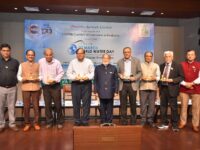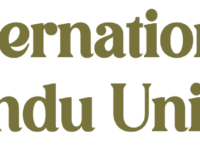Techie + civil servant: How this fellowship is fostering societal shift

Turning technological prowess into a catalyst for social change – this is the quest of an ambitious 18-month programme which has caught the attention of accomplished technologists across India. The Indian Administrative Fellowship, spearheaded by The/Nudge Centre for Social Innovation, embeds these professionals within key government departments. Their mission? To drive digital innovation in crucial sectors like agriculture and education, thereby transforming lives and addressing some of India’s most urgent social challenges.
Sudha Srinivasan, the chief executive and force behind the initiative talks to Hindustan Times detailing about the programme. Here are the edited excerpts. (ALSO READ: Indian start-up makes ‘Water from Air’: Sustainable climate solution or mere fancy?)
1. What was the inspiration behind starting the Indian Administrative Fellowship?
The Indian Administrative Fellowship was started for socially motivated technologists to apply their expertise to solve problems for India’s underprivileged, working with visionary civil servants. The pandemic inspired many high achievers from the corporate world to opt out of the rat race and commit to serving the country in a time of crisis. The Fellowship was launched at a time when the demand for digital in public systems was at an all-time high, and Fellows addressed a deeply felt need working with state departments. Beyond the pandemic, it continues to be a pathway for such professionals to pursue their quest for purpose, and a means for the state to derive value from private sector expertise.
2. Can you give us a detailed overview of the programme?
The/Nudge Indian Administrative Fellowship is an 18-month programme for senior technologists to work with heads of livelihood-focused departments on projects of strategic importance to the state.
Fellows are high achievers from the private sector with rich experience in leading digital transformation in various fields. They are chartered to propose, demonstrate, and implement technology solutions for population scale problems, working closely with Principal Secretaries and their teams, to improve livelihood opportunities for citizens in low-income communities.
In the inaugural cohort in Karnataka, the ten Fellows mobilized INR 735 crores in development financing across 36 significant initiatives, delivering impact for millions. This includes setting up a loan scheme for women in self-help groups, an innovation cell for digital agriculture, launching a retail brand for horticultural produce that increases farmers’ share of value, and many more. The Fellowship in Punjab is currently underway where Fellows are solving for employment opportunities for youth, water sustainability in agriculture, improved export market linkages for small scale industry and many such initiatives to expand economic opportunities. (ALSO READ | Interview: V Ramaswamy – “I want to rock the system”)
3. How do you select the government departments and corporates for this programme?
The Fellowship is in service of all departments that are focused on creating and improving livelihood opportunities such as agriculture, animal husbandry, tourism etc. or in building the capacity of citizens to access employment and entrepreneurship opportunities – such as skill development, higher education, etc. Fellows have also supported departments such as administrative reforms and planning that have a strong mandate to improve governance and advance the sustainable development agenda. Projects within these departments and selected in consultation with department heads, based on strategic priority and opportunity for digital innovation.
The Fellows apply in individual capacity, and not as representatives of a private sector entity. Fellows are selected through a rigorous evaluation process, assessing for their intent, leadership capability, and potential to steer large scale digital transformation. An empowered committee appointed by the Chief Secretary identifies the most suitable candidates from a pool curated by The/Nudge panel. (ALSO READ | Civil Services Day: Modi urges bureaucrats to be agents of change, innovation)
4. While the programme aims to help the private and government sectors learn from each other’s expertise, there can be instances where such opportunities may be leveraged to influence each other’s work in a negative way?
The Fellowship targets individuals who are looking to transition from the corporate world to the development sector and seeking to apply their expertise to solve problems for the country’s underprivileged. They are required to commit to the fellowship full-time, with no strings attached to their former employers.
The candidates for the Fellowship go through a rigorous evaluation process, keeping a high bar for intent, passion for public service, professional excellence, and leadership skills. They go through multiple rounds of interviews with sector experts, senior civil servants and government stakeholders. This ensures that Fellows who finally get selected have stellar leadership experience, high intent, and ethical construct to serve. A formal code of conduct is binding on fellows to safeguard against conflict of interest or drift from the stated objectives.
The programme overall is governed by a high-powered Steering Committee chaired by the apex authority in the government institution, and comprising other key stakeholders. The programme team monitors the deliverables and progress of each Fellow’s project, in achieving the agreed goals.
5. How well-received is the programme, and what is the feedback from participants?
The senior civil servants who participated as part of the inaugural cohort have found significant value in the programme and the contribution of the Fellows, resulting in a Net Promoter Score of 8. In Karnataka, where we have completed an entire cycle, the government has taken the partnership to the next level, to envision gains from this model on a 5-year time horizon.
Fellows, upon completing this journey, have taken up leadership positions in the social sector including non-profits, think tanks and other impact aligned institutions.
6. Are the outcomes oriented with the goals, and are you satisfied with the results?
The inaugural cohort with the Government of Karnataka has resulted several notable wins such as:
a. Creation of India’s first Uniform Brand for all FPO produce in Karnataka, impacting 900+ FPOs and mobilized INR 60 cr,
b. Launch of the Innovation Cell in the Agriculture department that has rolled out solutions for early pest detection for cotton crop, credit cashback for organic farmers and carbon sequestration measurement, and mobilized INR 72 cr
c. In the Panchayat Raj department, strengthening of the process gaps to effectively map out the role of GPs and Federations, towards empowerment for women SHG members, and mobilized INR 500 cr.
d. Set up an interest subvention fund of Rs. 100 Cr to enable loans for SHG members
e. Made Karnataka the first state to release the state curriculum framework for foundational level education
f. Delivered a robust set of recommendations for administrative reform, in record time.
7. How different will this batch be from the previous one, and what changes have you made to ensure a better outcome?
Some key changes include adding a formal learning and development programme in public policy, to fast-track Fellow’s understanding of government systems and policy frameworks, and upgrading the monitoring and evaluation framework that over time, builds evidence for the various models and establishes best practices that can be emulated elsewhere.

Atul Tiwari is a seasoned journalist at Mumbai Times, specializing in city news, culture, and human-interest stories. With a knack for uncovering compelling narratives, Atul brings Mumbai’s vibrant spirit to life through his writing.





